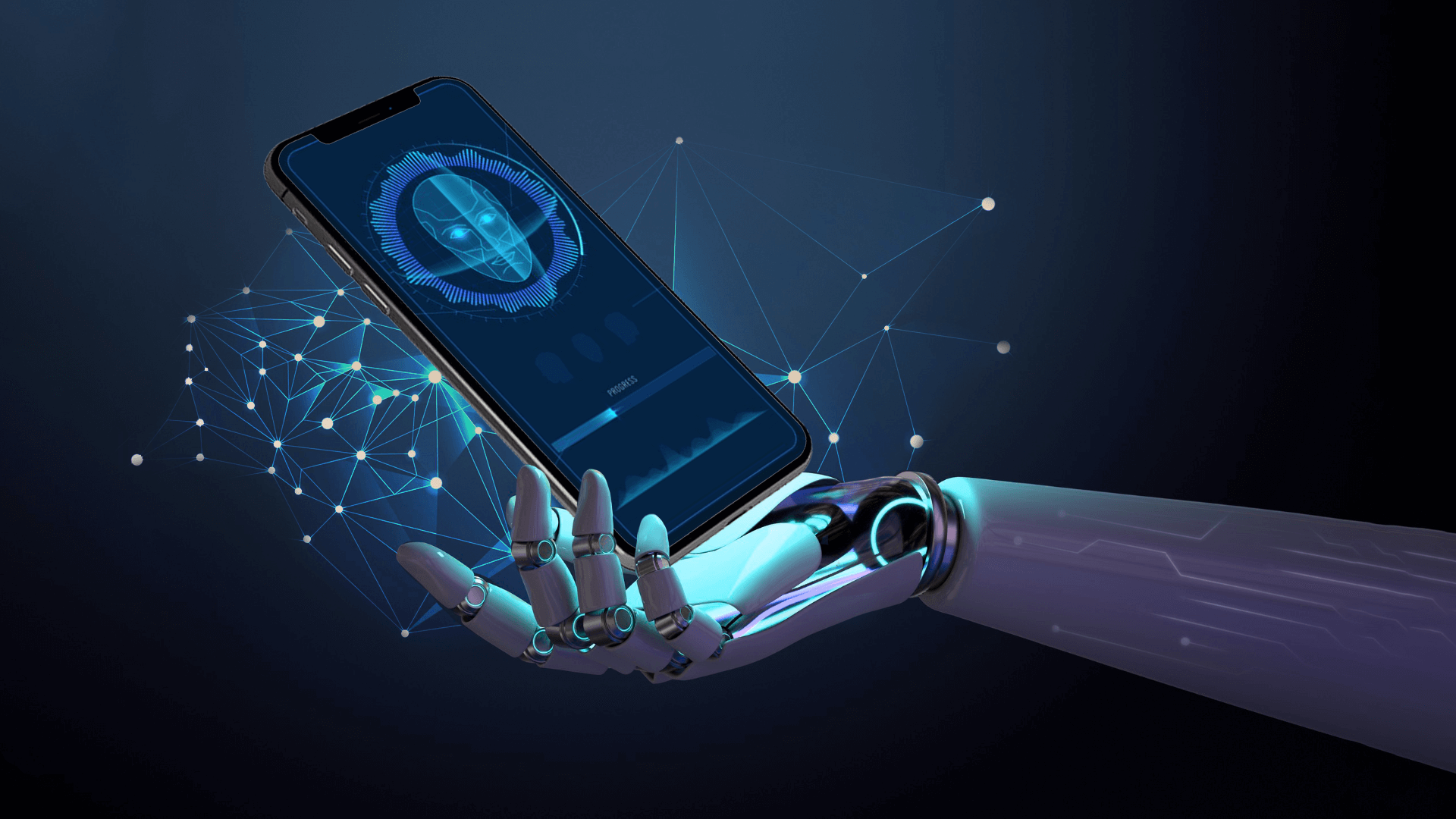.jpg)
Customer Relationship Management (CRM) has come a long way from its early days of basic data storage and management. Today, businesses are using AI in customer relationship management (CRM) to deliver personalized experiences, optimize processes, and enhance customer satisfaction. The future of CRM with AI is transforming the way businesses approach customer relationships, enabling companies to stay ahead of competitors, improve their customer service, and create stronger, more meaningful interactions.
As customer expectations rise and the volume of data grows, traditional CRM systems are no longer enough. AI in customer relationship management is the next frontier, where artificial intelligence brings deep data insights, automation, and predictive capabilities to enhance every facet of customer interaction. Let’s dive deeper into why AI is the future of CRM and how it’s reshaping the way businesses build and nurture relationships with their customers.
The Rise of AI in CRM
AI is revolutionizing CRM systems by taking over repetitive tasks, analyzing vast datasets, and uncovering insights that were once difficult or impossible for human teams to identify. With AI-powered CRM systems, companies can go beyond simply tracking customer interactions; they can predict future needs, automate responses, and personalize each communication, making the customer experience more relevant and efficient.
The future of CRM with AI is about more than just technology—it’s about enabling businesses to better understand and serve their customers. It’s about using intelligent systems that can adapt and evolve over time, making every interaction more impactful.
How AI Enhances CRM Systems
1. Personalization at Scale
One of the most exciting aspects of AI in customer relationship management is its ability to deliver personalized experiences at scale. AI can analyze historical customer data, including purchase patterns, browsing behavior, social media interactions, and more. This data is then used to create highly personalized recommendations and messages that resonate with individual customers.
For example, AI can help businesses send tailored emails, recommend products based on past purchases, or even suggest next best actions for sales teams to take when engaging with specific leads. As a result, customers feel more valued, and businesses see improved engagement and higher conversion rates.
2. Automation and Efficiency
AI-powered CRM systems can automate routine tasks, allowing sales and customer service teams to focus on more complex and high-value activities. For instance, AI chatbots can handle frequently asked questions, assist customers with common requests, and even help guide them through the purchasing process—freeing up human agents to address more specialized issues.
Automation also extends to the sales process, where AI can automatically score leads, prioritize prospects, and schedule follow-up tasks based on predictive analytics. This significantly improves sales team efficiency, reduces administrative burden, and ensures that businesses are making the most out of every customer interaction.
3. Predictive Analytics for Proactive Engagement
AI’s predictive capabilities are another game-changer for CRM. By analyzing vast amounts of historical data, AI can predict customer behavior and anticipate future needs. This allows businesses to act proactively, engaging customers before problems arise or before they even realize they need assistance.
For example, if a customer has been browsing a particular product or service for a while, AI can trigger personalized outreach, offering them a discount or additional product information. Similarly, AI can predict churn by identifying patterns in customer behavior, such as declining engagement or repeated service issues, allowing businesses to intervene before a customer decides to leave.
4. Sentiment Analysis for Deeper Insights
AI-driven sentiment analysis tools are helping businesses understand how customers feel about their products, services, or brand as a whole. By analyzing customer communications—whether emails, social media posts, or customer service interactions—AI can detect positive, neutral, or negative sentiments and alert businesses to any potential issues.
This deeper understanding of customer sentiment allows businesses to act quickly and appropriately, addressing negative feedback or reinforcing positive experiences. By leveraging sentiment analysis, companies can fine-tune their messaging, improve customer service interactions, and maintain a more responsive approach to customer needs.
5. Improved Customer Service and Support
AI is reshaping customer service by enabling businesses to offer faster, more accurate support. AI-driven CRM systems use natural language processing (NLP) to understand and respond to customer inquiries automatically. Virtual assistants or AI chatbots can answer questions, guide users through troubleshooting steps, and even offer solutions to common problems without human intervention.
In more complex cases, AI can route the customer to the right agent with the appropriate expertise, ensuring a faster resolution. The result is a more efficient customer support process that boosts customer satisfaction and loyalty.
The Future of CRM with AI
The potential for AI in CRM is virtually limitless. As AI continues to evolve, it will become even more sophisticated, enabling businesses to automate more tasks, gain even deeper insights, and create hyper-personalized experiences for their customers.
1. AI-Powered Predictive Customer Journeys
In the future, AI will enable businesses to map out and predict entire customer journeys. By analyzing past interactions and customer preferences, AI can provide recommendations not only on what products or services to offer, but also when to reach out to customers and through which channels. This predictive capability will further enhance the personalized experience and drive more successful customer engagements.
2. Smarter Self-Service Options
Self-service options powered by AI will continue to improve, with customers able to resolve issues, make purchases, and access information with minimal human intervention. Enhanced virtual assistants and chatbots will become more intuitive and capable of handling increasingly complex tasks, ensuring that customers have quick and seamless access to the information they need.
3. AI-Driven Hyper-Personalization
AI’s ability to hyper-personalize customer interactions will continue to grow. In the future, customers will expect brands to offer tailored experiences not just based on their past behavior but also their emotional state, preferences, and real-time context. This will require businesses to integrate data from a range of sources, including IoT devices, wearables, and social media, to provide a truly individualized experience.
Conclusion
The future of CRM with AI is bright, and businesses that leverage AI in customer relationship management will have a competitive edge in an increasingly digital and customer-centric world. AI is transforming CRM by automating processes, personalizing interactions, predicting customer behavior, and enabling more efficient and proactive engagement. As AI technology continues to evolve, businesses will have even more powerful tools to enhance their relationships with customers and drive growth.
Investing in AI-driven CRM systems is no longer optional for businesses looking to stay ahead. It’s the key to creating smarter, more efficient, and more personalized customer experiences that lead to increased satisfaction, loyalty, and long-term success.
Tags:
#artificial intelligence solutions companies
#artificial intelligence solutions
#artificial intelligence consulting services
#cloud based artificial intelligence solutions
#custom artificial intelligence solutions
#secure artificial intelligence solutions





.jpg)



.jpg)

